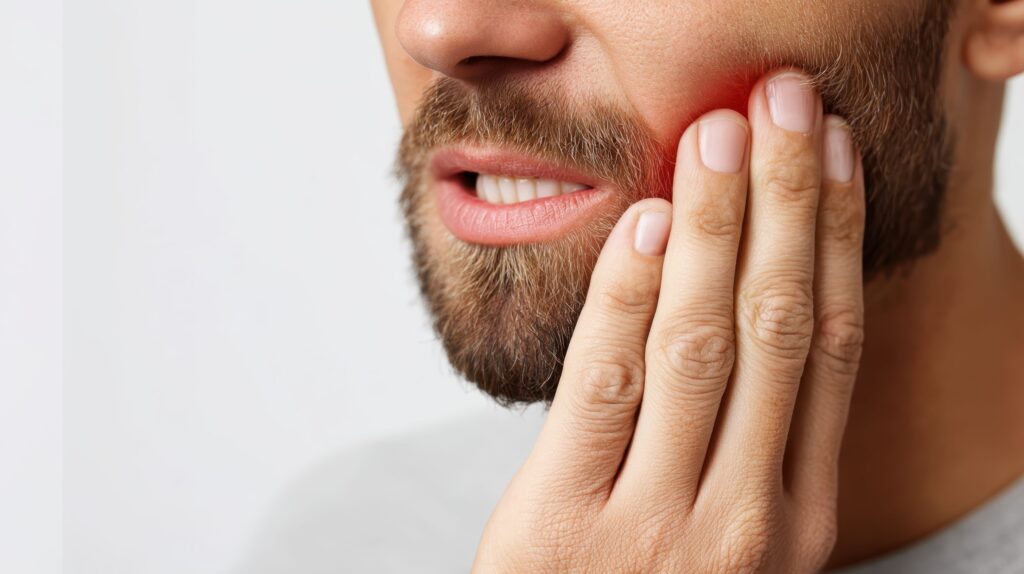Denture Dilemma: How Do I Address Sores?
July 2, 2025

Dentures are a versatile solution that can replace some or all of your missing teeth, depending on your needs. Plus, they’re made from resilient, customizable materials for more lifelike, comfortable results than ever before.
However, many patients develop canker sores or blisters when they first start wearing their restoration regularly. Thankfully, they usually heal after a few days to about a week, but you don’t have to live with discomfort in the meantime. Read on to learn 3 helpful tips for addressing denture wounds!
Tip #1: Take a Break
The gum-colored acrylic base of your dentures relies on a firm suction against your connective tissues over the bony ridges of your mouth to remain in place all day. Although they’re designed to fit like a glove for improved comfort, it’s only natural to develop mild sores or aches in the first few weeks that you wear them.
However, if you feel too tender, you might avoid wearing your dentures altogether. To prevent this, you should remove them at night and leave them to soak in a glass of room-temperature water or special cleaning solution. This gives your gums a much-needed reprieve from the constant pressure of supporting your teeth and allows your tender tissues to rest and recover.
Tip #2: Rinse with Salt Water
Canker sores or blisters on your gums can cause additional aches and inflammation due to fluid buildup, which can fortunately be alleviated by rinsing your mouth gently with salt water. You can combine about ¼ teaspoon of salt into a glass of warm water and stir the mixture until it dissolves.
Then, sip the solution, swish it around your mouth, and spit it into the sink to avoid swallowing. This can usually be safely repeated several times a day until the wounds mend. Not only can this mitigate aches, but it can also prevent potential infections by naturally disinfecting your teeth and gums.
Tip #3: Address Aches
Canker sores can cause lingering discomfort until they heal, but fortunately, there are ways to address adverse sensations. It’s usually safe to take over-the-counter pain relievers, like Tylenol or ibuprofen, to address tenderness. You might also benefit from a topical numbing gel to reduce sensitivity so you can continue wearing your dentures.
If the blisters don’t heal after a week or two, you should contact your dentist for an appointment. They may need to examine your mouth and dentures to ensure they fit properly so your tender tissues can recover.
Meet the Author
Dr. Christopher Nowacki has decades of experience helping people improve their lives by enhancing their dental health. He earned his dental degree from the University of Florida, and today is a member of several professional organizations, including the American Dental Association. He takes the time to get to know your unique concerns, then uses state-of-the-art technology to tailor treatment plans to meet them. If you have denture sores and need help, you can request an appointment on the website or call (321) 724-9300.
No Comments
No comments yet.
RSS feed for comments on this post.
Sorry, the comment form is closed at this time.
 Beautiful YouDental
Beautiful YouDental